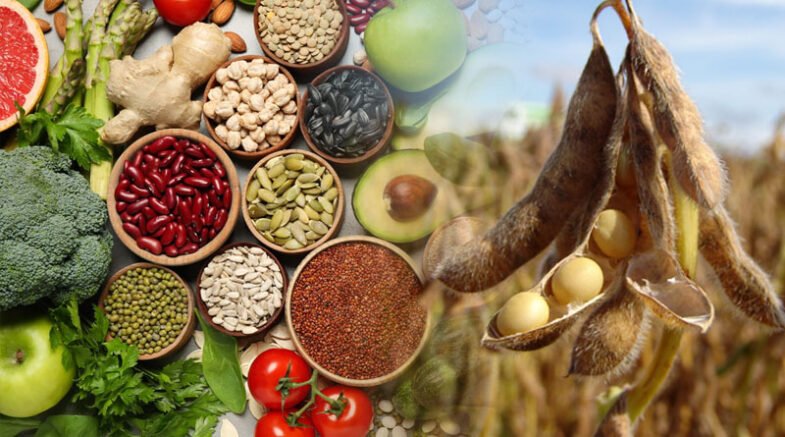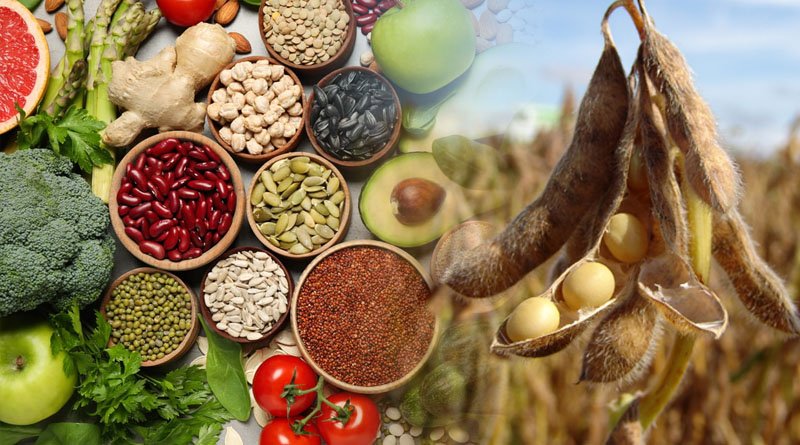Soybean contains compounds called isoflavones, which have been shown to lower cholesterol levels and reduce the risk of heart disease.

Soybean is a versatile super legume that is widely cultivated across the globe for its high nutritional value and wide range of applications. It is a great source of protein, fiber, and several essential vitamins and minerals, making it an excellent choice for a healthy diet.
In this article, we will take a closer look at soybean, the super legume, its nutritional benefits, and its various uses.
Nutritional Benefits of Soybean:
Soybean is a rich source of protein, which is essential for building and repairing tissues in the body. It contains all the essential amino acids that the body cannot produce on its own, making it a complete protein source.
Soybean is also a great source of fiber, which helps regulate digestion and prevent constipation. Additionally, it is rich in several essential vitamins and minerals, including vitamin K, vitamin C, folate, and iron, all of which play vital roles in maintaining overall health.
One of the most significant health benefits of soybeans is their ability to reduce the risk of heart disease. Soybean contains compounds called isoflavones, which have been shown to lower cholesterol levels and reduce the risk of heart disease. Studies have also shown that soybean consumption can help to regulate blood sugar levels, making it a great choice for individuals with diabetes.
Soybean also contains compounds called phytoestrogens, which can mimic the effects of estrogen in the body. This has led to some concerns about the potential for soybean consumption to interfere with hormone levels, particularly in women. However, studies have shown that soybean consumption is safe and does not have any significant adverse effects on hormone levels.
Uses of Soybean:
Soybean is an incredibly versatile super legume that is used in a wide variety of food products. One of the most common uses of soybeans is in the production of soy milk and tofu. Soy milk is a popular dairy milk alternative that is made by soaking and grinding soybeans and then boiling the mixture to produce a creamy liquid.
Tofu, on the other hand, is a popular plant-based protein source that is made by coagulating soy milk and pressing the resulting curds into blocks.
Soybean is also a common ingredient in many processed foods, including meat substitutes, snack foods, and baked goods. It is often used as a filler or binder to add texture and flavor to these products. Soybean oil, which is extracted from soybeans, is also widely used in cooking and food processing.
Beyond food, soybeans have several other applications. It is used as a feedstock for the production of biodiesel, a renewable fuel source that can be used to power vehicles and machinery. Soybean is also used as a fertilizer and soil conditioner, as it is rich in nitrogen and other essential nutrients that are vital for plant growth.
Soybeans in Agriculture:
Soybean is a valuable crop for farmers, as it can be grown in a wide variety of environments and climates. It is a high-yielding crop that requires relatively low inputs of fertilizer and pesticides, making it a cost-effective option for farmers.
Additionally, soybean is an excellent rotation crop, as it can help improve soil health and reduce the incidence of pests and diseases. In recent years, soybeans have become increasingly popular as a cash crop for small farmers in developing countries. The crop provides a reliable source of income and can be grown using sustainable farming practices that are less damaging to the environment.
Conclusion:
Soybean is a highly nutritious and versatile legume that offers numerous health benefits and a wide range of applications.
Whether you are looking for a healthy source of protein or a plant-based alternative to dairy milk, soybean is an excellent choice. With its ability to grow in a wide variety of environments and its numerous agricultural applications, soybean is also a valuable crop for the sustainable production of food and energy.
Despite its many benefits, however, soybean cultivation can also have negative impacts on the environment, particularly if it is grown using intensive farming practices that rely heavily on chemical inputs.
To mitigate these impacts, many farmers are adopting more sustainable farming practices, such as no-till agriculture and intercropping, which can help to improve soil health and reduce the use of pesticides and fertilizers. In addition to its agricultural and culinary uses, soybean is also a valuable industrial commodity.
It is used in the production of a wide range of products, including plastics, paints, and textiles. The oil extracted from soybean is also used in the production of a variety of products, including biodiesel, candles, and soap.
Overall, soybean is an incredibly versatile and important crop that plays a vital role in our food systems, our economy, and our environment. While there are certainly challenges associated with soybean cultivation, there are also many opportunities for innovation and improvement in the way we produce and use this valuable legume.
By working together to address these challenges, we can ensure that soybean remains an important and sustainable crop for years to come.

Informative article 👏